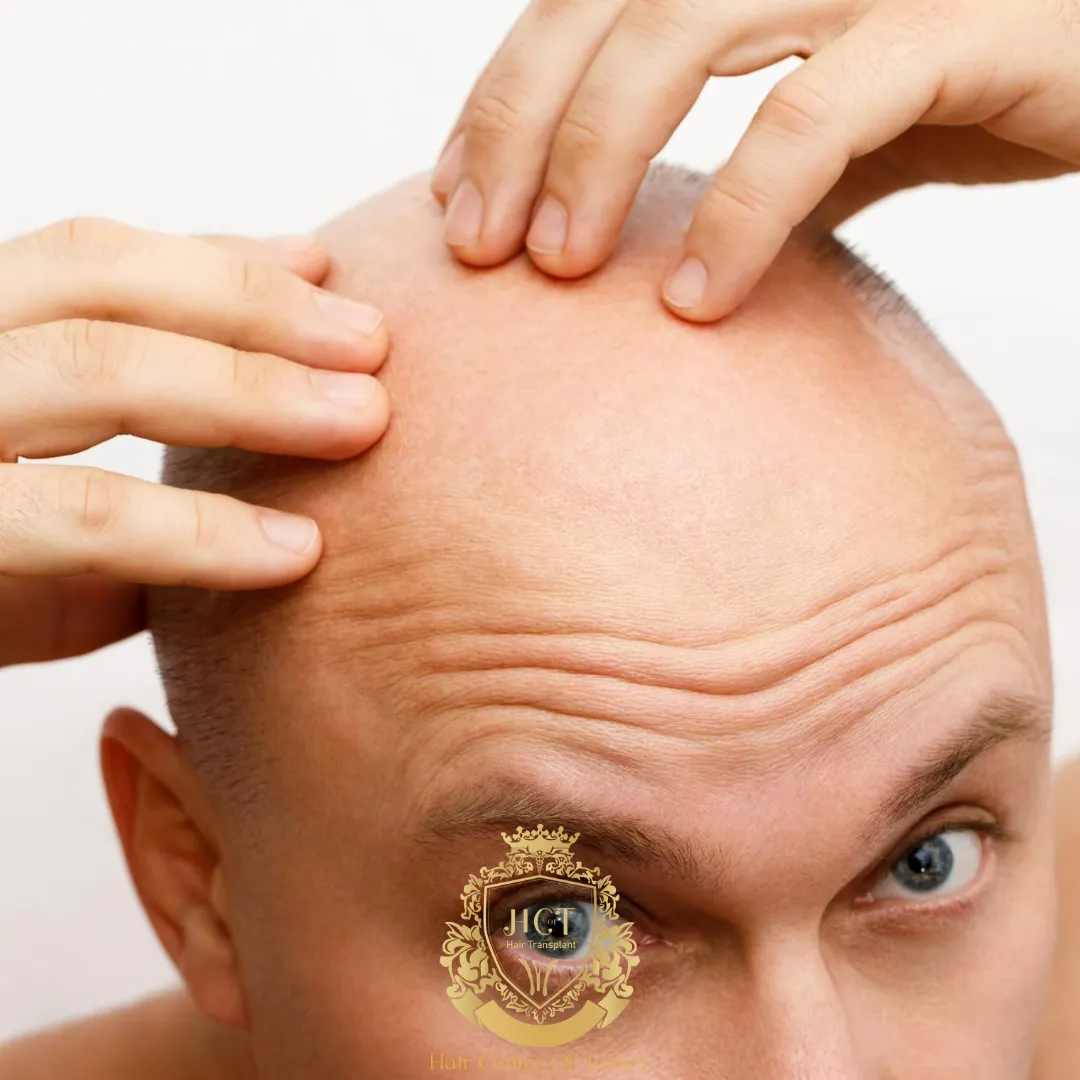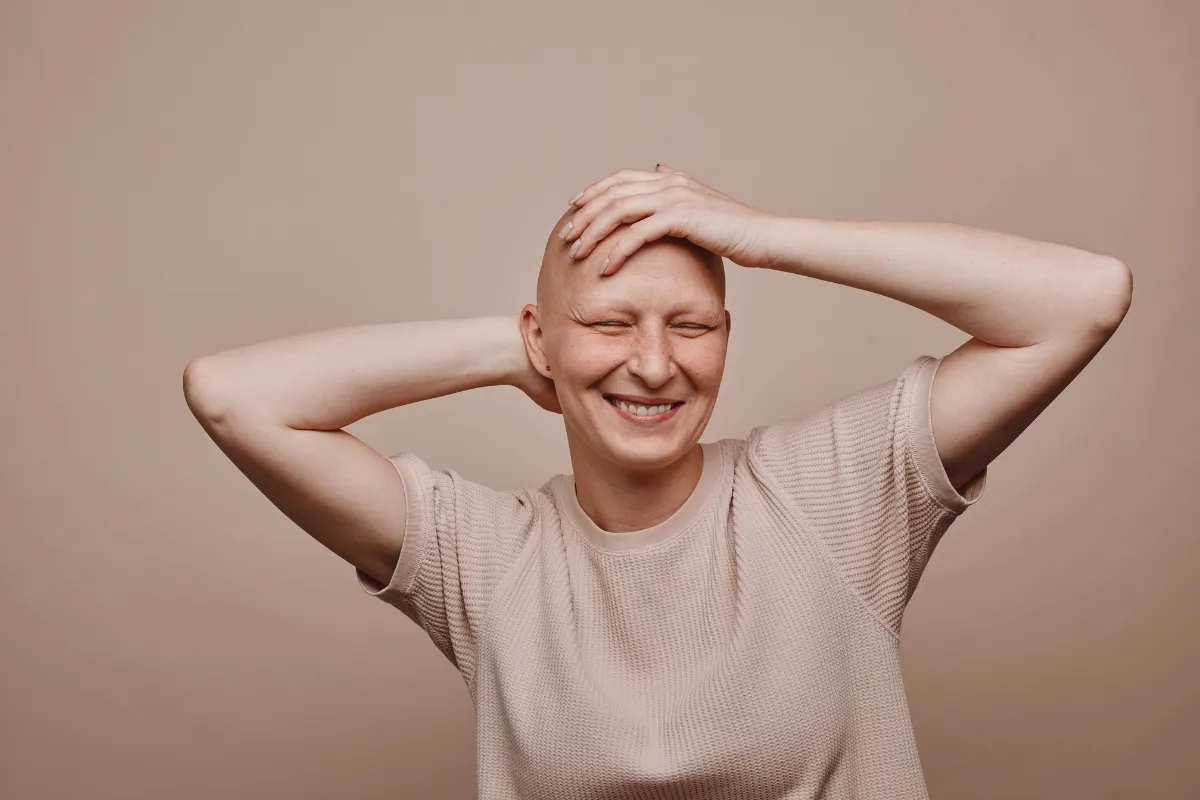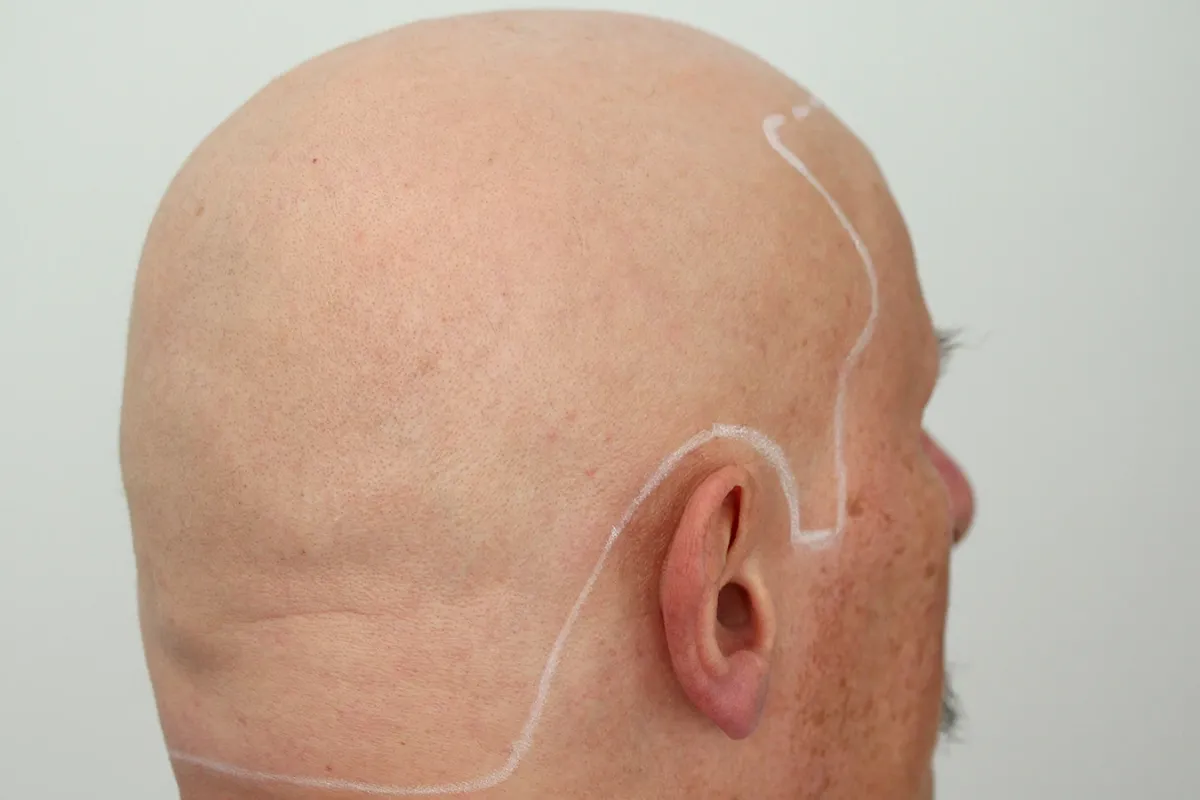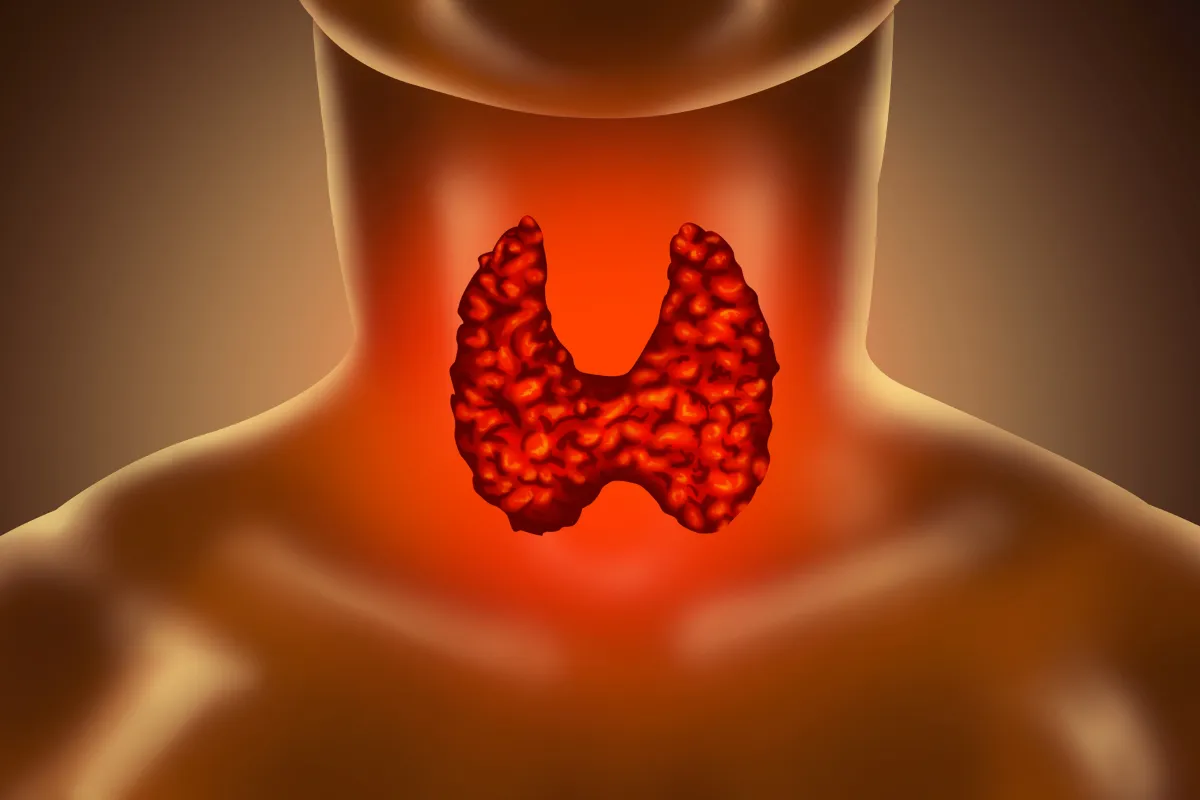
What Is Alopecia Totalis And What Are Its Symptoms And Causes?
Alopecia totalis is a rare autoimmune condition that causes complete hair loss on the scalp.
It develops when the immune system attacks hair follicles, stopping hair growth entirely. While unpredictable, the condition is not contagious and may respond to medical treatment in some individuals.

Table of Contents
What Is Alopecia Totalis?
Alopecia totalis is an advanced form of alopecia areata. Unlike the more common patchy hair loss seen in alopecia areata, alopecia totalis results in total scalp baldness.
It can appear suddenly or progress over time and may affect people of any age. Children and young adults are more frequently diagnosed, though it can occur later in life as well.
How Alopecia Totalis Differs From Other Types Of Hair Loss
Alopecia totalis is distinct from other hair loss conditions in both cause and pattern:
Alopecia areata causes localized, round patches of hair loss.
Alopecia universalis leads to complete loss of scalp and body hair.
Androgenetic alopecia causes gradual thinning driven by genetics and hormones.
Alopecia totalis does not follow a predictable pattern and is driven by immune dysfunction rather than hormones or aging.

Common Symptoms Of Alopecia Totalis
The defining symptom is complete loss of scalp hair. In some cases, eyebrows and eyelashes may also thin or fall out.
Additional signs may include scalp tingling or itching before hair loss begins. Nail changes such as pitting, ridging, or brittleness can also occur, reflecting underlying autoimmune activity.
The emotional impact is often significant. Sudden hair loss can lead to anxiety, lowered self-esteem, or depressive symptoms, particularly when the condition progresses rapidly.
What Causes Alopecia Totalis?
Alopecia totalis is considered an autoimmune disorder. The immune system mistakenly targets hair follicles, disrupting the normal growth cycle.
Several factors may increase risk, including genetic predisposition and a family history of autoimmune disease. Conditions such as thyroid disorders, vitiligo, or type 1 diabetes are more common in affected individuals.
Psychological or physical stress is believed to act as a trigger in some cases, although it is not considered a direct cause.

Available Treatment Options
There is no guaranteed cure for alopecia totalis, but several treatments may help manage the condition or encourage regrowth:
Immune-Modulating Treatments
Corticosteroids may be used topically, orally, or via injection to suppress immune activity around hair follicles.
Contact Immunotherapy
Topical agents applied to the scalp aim to redirect immune responses and stimulate regrowth in some patients.
JAK Inhibitors
Newer oral medications target immune signaling pathways involved in autoimmune hair loss. Results vary, and medical supervision is essential.
Supportive And Cosmetic Options
Wigs, scalp prosthetics, and cosmetic solutions offer aesthetic support and help many individuals regain confidence.
Treatment response differs widely. Some people experience partial or full regrowth, while others do not.
Coping With Alopecia Totalis
Emotional support is an important part of management. Counseling, support groups, and open communication with loved ones can help reduce psychological strain.
Many people find empowerment through acceptance, styling alternatives, or advocacy communities focused on alopecia awareness.
Frequently Asked Questions
What triggers alopecia totalis?
Autoimmune follicle attack, influenced by genetics and sometimes stress, infections, or other autoimmune disease.
What are the signs and symptoms of alopecia?
Sudden patchy hair loss, smooth bald areas, ‘exclamation-point’ hairs, and sometimes nail pitting.
Can hair grow back from alopecia totalis?
Yes, regrowth can occur, but complete recovery is less common and relapses occur.
What is the best treatment for alopecia totalis?
JAK inhibitors prescribed by dermatologists currently have the strongest evidence for alopecia totalis.
What is the life expectancy of someone with alopecia totalis?
Normal life expectancy; alopecia totalis affects hair only, not overall survival.




